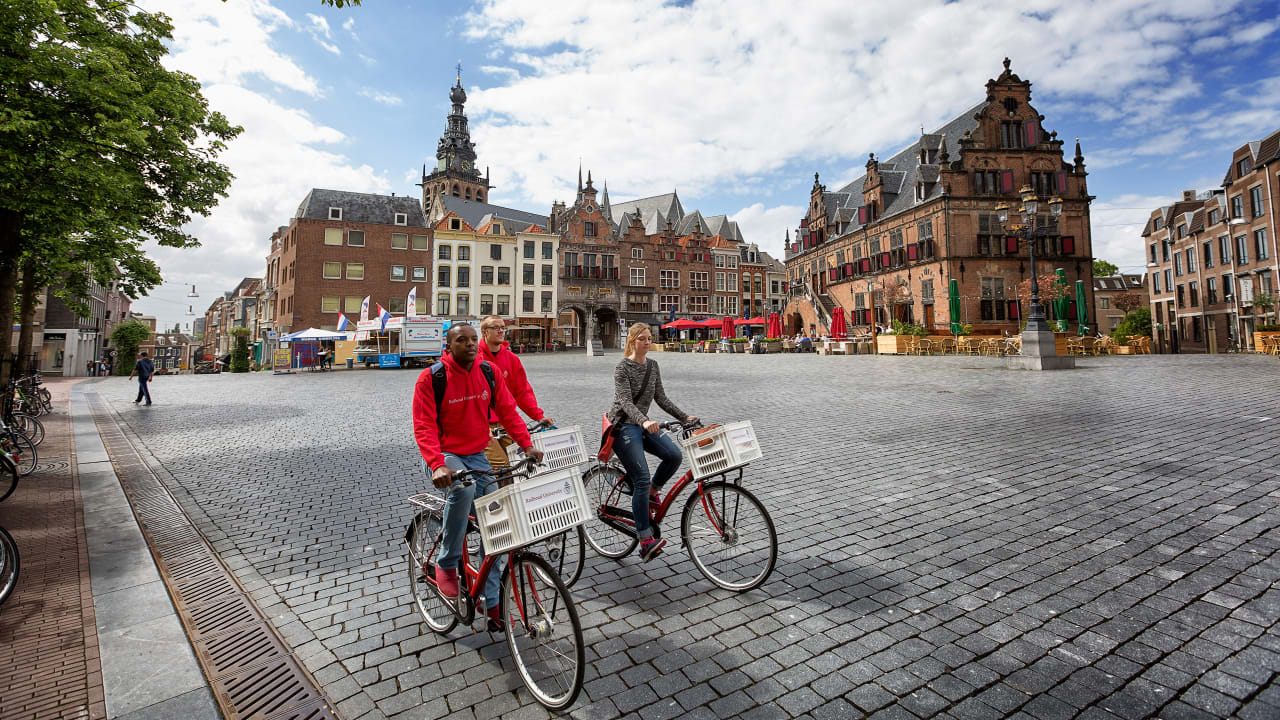
MSc in Microbiology
Radboud University

Key Information
Campus location
Nijmegen, Netherlands
Languages
English
Study format
On-Campus
Duration
2 years
Pace
Full time
Tuition fees
EUR 2,314 / per year **
Application deadline
01 Jul 2024*
Earliest start date
Sep 2024
* final deadline for EU students | deadline for EU students who want to get assistance with housing: 1 May 2024 | deadline for non-EU students: 1 Apr 2024
** for EU/EEA nationals; € 17,000 for non-EU/EEA nationals
Introduction
Microbiology at Radboud University focuses on the functioning of microorganisms and their potential for improving our health and the environment. Think of applications in energy-efficient societal waste processing or next-generation vaccines. As the programme contains more than one year of academic research, you will gain extensive hands-on experience in microbial research, for example in the leading research department of Prof. Mike Jetten.
You will follow medical as well as general microbiology courses, enabling you to choose the topics that interest you the most. The research of the Microbiology department at Radboud University has been bestowed with the most prestigious science prizes, including three ERC Advanced Grants, a Spinoza Prize, and two Gravitation Grants. You will be able to work with state-of-the-art bio-reactors, electron microscopy and mass spectroscopy equipment, and facilities for molecular methods. We offer internships at multiple related research institutes, such as the Department of Ecological Microbiology, the Department of Pediatrics (Radboudumc), the Department of Internal Medicine (Radboudumc) and the Department of Medical Microbiology (Radboudumc). Teaching takes place in small groups and in a stimulating, personal setting.
Facts and figures
- Degree: MSc in Biology
- Faculty: Faculty of Science
- Croho code: 66860
- Duration: 2 years, (120 EC), full time
- Start month: September
- Language of instruction: English
- Enrolled students: 20 - 40 per year
- Contact hours: 20 - 30 hours per week
Master's Microbiology: something for you?
- Work with state-of-the-art bio-reactors, electron microscopy and mass spectroscopy equipment, and facilities for molecular methods.
- Follow medical as well as general microbiology courses, which enables you to choose the topics that interest you the most.
- We offer internships at multiple research institutes, including departments at the University Medical Centre (Radboudumc)
- The research of our Microbiology department has won many prestigious science prizes, including three ERC Advanced Grants, a Spinoza Prize, and two Gravitation Grants.
Admissions
Curriculum
Specialisations
Microbiology is a specialisation of the Master’s programme in Biology. The other specialisations are:
- Adaptive Organisms
- Conservation and Restoration Ecology
- Water and Environment
- Transnational Ecosystem-based Water Management
- Science in Society
- Science, Management and Innovation
- Science and Education (in Dutch)
Scholarships and Funding
Several scholarship options are available. Please check the university website for more information.
Career Opportunities
Career prospects
After graduation, our students can take up a position as a:
- Researcher at a university or research institute
- Researcher in a company, either a large or a start-up company
- Researcher at a governmental research institute
- Consultant at a governmental agency, like a ministry
- Consultant at a consulting firm
- Risk analyzer
- Policy officer at a governmental organisation or an NGO
- Project coordinator in water or ecosystem management
- Communications officer at an environmental organisation
- Teacher in biology (College or secondary education level)
PhD positions at Radboud University
Every year, Radboud University offers about 5 to 10 PhD positions in this field of research. Of course, many graduates also apply for a PhD position at related departments in the Netherlands, or abroad.
Labour market information in the Netherlands Studiekeuze123*
From the graduates of the Master’s programme in Biology, 68% found a job within their field. The gross starting salary based on 38 hours a week is €2,200. (Source: www.studiekeuze123.nl)
Radboud Career Service
Radboud Career Service Science helps students, PhDs and alumni with advice and counselling, either in an individual interview or in a workshop with fellow students. Career Service Science can introduce you to people at national and international companies and organisations that offer interesting jobs and internships. With their extensive knowledge of the labour market and recruitment experience, they advise you on how to find the job you desire.